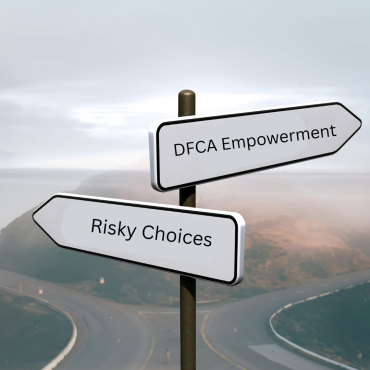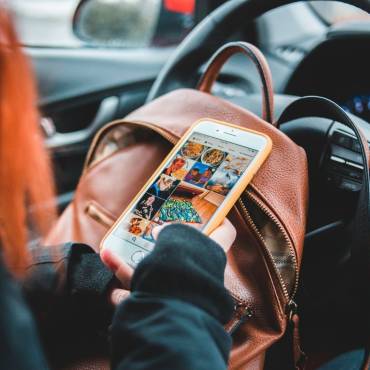The Link between Holiday Depression and Teen Drug Use: Understanding the Impact and Seeking Solutions
The holiday season is often associated with joy, festivities, and time spent with loved ones. However, for some teenagers, it can be a time of increased stress, loneliness, and depression. The juxtaposition of heightened expectations and feelings of isolation during the holidays can lead some adolescents to turn to drugs as a coping mechanism. Understanding the relationship between holiday depression and drug use among teens is crucial in developing effective preventive measures and support systems to help them navigate this challenging time.
1. The Pressure of Expectations
During the holiday season, societal expectations, cultural norms, and family traditions can place immense pressure on teens to feel joyful and exuberant. The pressure to conform to the ideals of a perfect holiday experience can be overwhelming for those who are already struggling with personal challenges or feelings of inadequacy. This stress can exacerbate feelings of depression, making teens more susceptible to seeking an escape through substance use.
2. Loneliness and Social Isolation
While many teenagers are fortunate to have strong support networks, there are those who face feelings of loneliness during the holidays. This isolation can result from various factors, such as family issues, distance from loved ones, or a lack of friends to share the season with. For these teens, turning to drugs might provide a temporary reprieve from their emotional pain, providing a false sense of connection or distraction from their feelings of loneliness.
3. Self-Medication and Escapism
Teenagers struggling with depression during the holidays may resort to drug use as a form of self-medication to alleviate emotional distress. Unfortunately, this coping mechanism is both dangerous and unsustainable, as it only exacerbates the underlying issues and can lead to long-term addiction.
4. Peer Influence
The holiday season often brings about gatherings and parties, where drug use may be more prevalent among peers. Teens who feel pressured to fit in or seek acceptance may experiment with drugs during these social events. The desire to be a part of the group and escape from their negative emotions can drive vulnerable teenagers to make poor decisions regarding substance use.
5. Accessibility of Drugs
Another contributing factor to drug use during the holidays is the increased accessibility of substances. With parties and gatherings being more common during this time, access to drugs may become easier for teenagers. Additionally, some teens might be left unsupervised for more extended periods due to school vacations, increasing the risk of substance experimentation.
Prevention and Intervention
Addressing the issue of holiday depression and its link to teen drug use requires a multi-faceted approach involving parents, educators, healthcare professionals, and the community.
1. Open Dialogue: Parents and guardians should encourage open and honest conversations about the holiday season’s challenges and emotions. Teens need to feel comfortable expressing their feelings and seeking support when needed.
2. Emotional Support: Offering emotional support and understanding can make a significant difference for struggling teenagers. Identifying signs of depression and seeking professional help when necessary can prevent the escalation of the issue.
3. Mental Health Education: Incorporating mental health education into school curricula can increase awareness about depression, substance use, and healthy coping mechanisms among teenagers.
4. Positive Alternatives: Encouraging teens to engage in positive activities, such as sports, hobbies, or volunteering, can provide healthy outlets for emotions and strengthen their sense of belonging.
5. Community Programs: Communities can organize substance-free holiday events and support groups to help teenagers who may be feeling isolated during the season.
The holiday season can be an emotionally challenging time for teenagers, especially those dealing with depression and feelings of loneliness. Understanding the link between holiday depression and drug use among teens is crucial in order to address the issue effectively. By fostering open communication, providing emotional support, and promoting healthy coping mechanisms, we can empower teens to navigate the holiday season with resilience and ensure they have the resources needed to stay away from destructive behaviors like drug use. Together, we can create a supportive environment that helps teenagers find joy and connection during the holidays and throughout the year.
Drug Free Clubs of America is on a mission to reduce the impacts of drug use in youth. Across the nation, drug and alcohol use is on the rise among teens. We provide students with practical tools and techniques to navigate peer pressure and choose a healthy lifestyle. Partnering with schools and communities, we offer preventative programming to meet students where they are. Through randomized drug testing, educational resources, a positive outlet, and a supportive community, we are changing school cultures and reducing alcohol, marijuana, vaping, and other detrimental activities among our members and the entire school body. Drug Free Clubs of America has over 5,000 student and faculty/staff members and Clubs in over 50 schools in Ohio, Kentucky, and West Virginia.




Add Comment